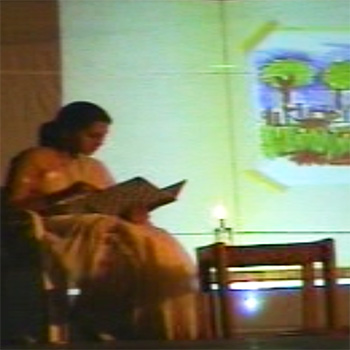Stories are told, heard, seen, and read, but most of all… felt. A good story has the uncanny ability to enrapture from the oldest to the young. Combining subject, experience and message, each writer has taken an everyday theme and built around it a brief yet captivating drama – an essentially human requirement. But beyond the story itself, a short story can serve as a valuable and intimate account of a chosen subject, a place, an incident, or a person. Without the employment of pigment or bristle, a short story can at once paint a beautiful picture, unbound by time. And like painters, every author seeks to capture a different subject. From the value of the love of a family to the use of a dining table, the stories are based on themes as eclectic as the people in this nation. However, if there is one thread holding them together, it is the feeling of every author's own personal experience that comes through in a rather compelling manner. In 'The Fig Tree Stands Witness', the author tells of a tragically materialistic world through the hardships faced by his uncle when all his family cares about is his property and not his well-being. These messages, though known to us, come across more profoundly in these stories in ways we can more easily connect to. As compared to its older counterparts, the delivery of a message in the contemporary short story is more graphic. Although there is usually no 'moral' that sums up the story in a single line, the story itself comes across as very real and tends to put the reader smack dab in the middle of events taking place. The message is thus experienced rather than read.





